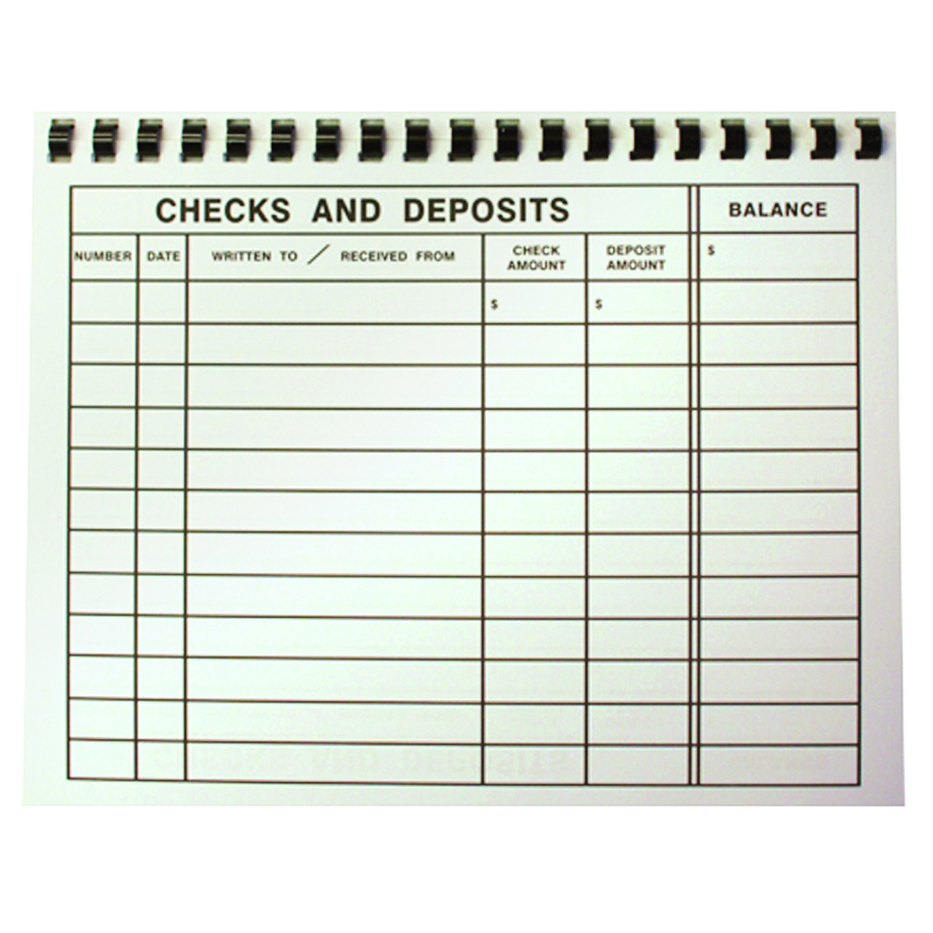
Effortless Tracking: Checkbook Registers for Financial Clarity
In the realm of personal and business finance, maintaining clear and accurate records is fundamental. Checkbook registers play a crucial role in this process, offering a simple yet effective means of tracking financial transactions and ensuring financial clarity. Let’s explore the significance of checkbook registers and how they contribute to efficient financial management.
The Foundation of Financial Tracking
Checkbook registers serve as the foundational tool for tracking financial transactions. Whether it’s writing a check, making a debit card purchase, or initiating an electronic transfer, every transaction finds its place in the checkbook register. This detailed record provides a chronological and comprehensive view of all financial activities.
Manual Recording for Precision
One of the distinguishing features of checkbook registers is their manual recording method. Each transaction is diligently entered into the register, including the date, payee, transaction description, and amount. This manual recording process ensures precision and accuracy, allowing individuals and businesses to have a granular view of their financial history.
Real-Time Transaction Visibility
Checkbook registers offer real-time visibility into financial transactions. As transactions occur, they are promptly recorded in the register. This real-time visibility enables individuals to monitor their account balance, track spending patterns, and stay informed about their financial standing without relying on delayed bank statements.
Budgetary Control and Planning
Beyond tracking transactions, checkbook registers play a pivotal role in budgetary control and planning. By categorizing expenditures and income, individuals can analyze their financial patterns. This categorization facilitates the creation of budgets, helping individuals set spending limits, allocate funds to different categories, and work towards their financial goals.
Simplicity in Design and Use
Checkbook registers are known for their simplicity in design and ease of use. The straightforward layout typically includes columns for date, transaction description, check number (if applicable), debit or credit amounts, and the running balance. This simplicity makes checkbook registers accessible to individuals with varying levels of financial expertise.
A Comprehensive Financial History
Over time, a checkbook register accumulates into a comprehensive financial history. This history is invaluable for various purposes, including tax preparation, financial audits, and long-term financial planning. The register acts as a detailed archive, providing a clear trail of income and expenses that can be referenced as needed.
Enhanced Financial Discipline
Maintaining a checkbook register instills financial discipline. The act of recording each transaction prompts individuals to be mindful of their spending and financial commitments. This heightened awareness contributes to better financial decision-making, reduced impulse spending, and an overall improvement in financial discipline.
Complementing Digital Banking Tools
While digital banking tools and online platforms offer convenience, checkbook registers complement these technologies. In situations where digital platforms may experience downtime or when individuals prefer an additional layer of control, a manual checkbook register remains a reliable and independent record-keeping method.
Privacy and Security Considerations
Checkbook registers offer an added layer of privacy and security. Unlike digital transactions that may be susceptible to cyber threats, a physical checkbook register is a tangible and private record. This aspect appeals to individuals who prioritize maintaining a tangible record of their financial activities without relying solely on digital platforms.
Educational Tool for Financial Literacy
Beyond its practical utility, a checkbook register serves as an educational tool for financial literacy. Individuals, especially those new to managing finances, can gain a deeper understanding of financial concepts, such as balancing accounts, reconciling statements, and the impact of spending habits on overall financial health.
To experience the efficiency and clarity offered by Checkbook Registers, visit Millennium Business. Discover how this timeless financial tool empowers individuals and businesses to maintain accurate records, enhance financial discipline, and gain a clearer understanding of their financial journey.